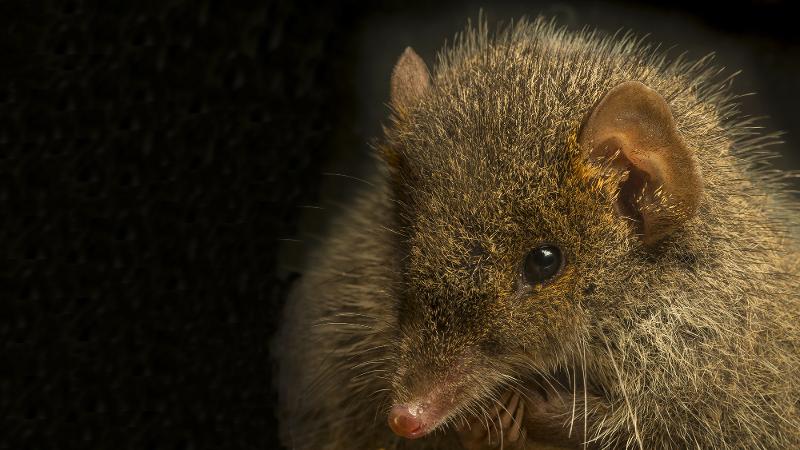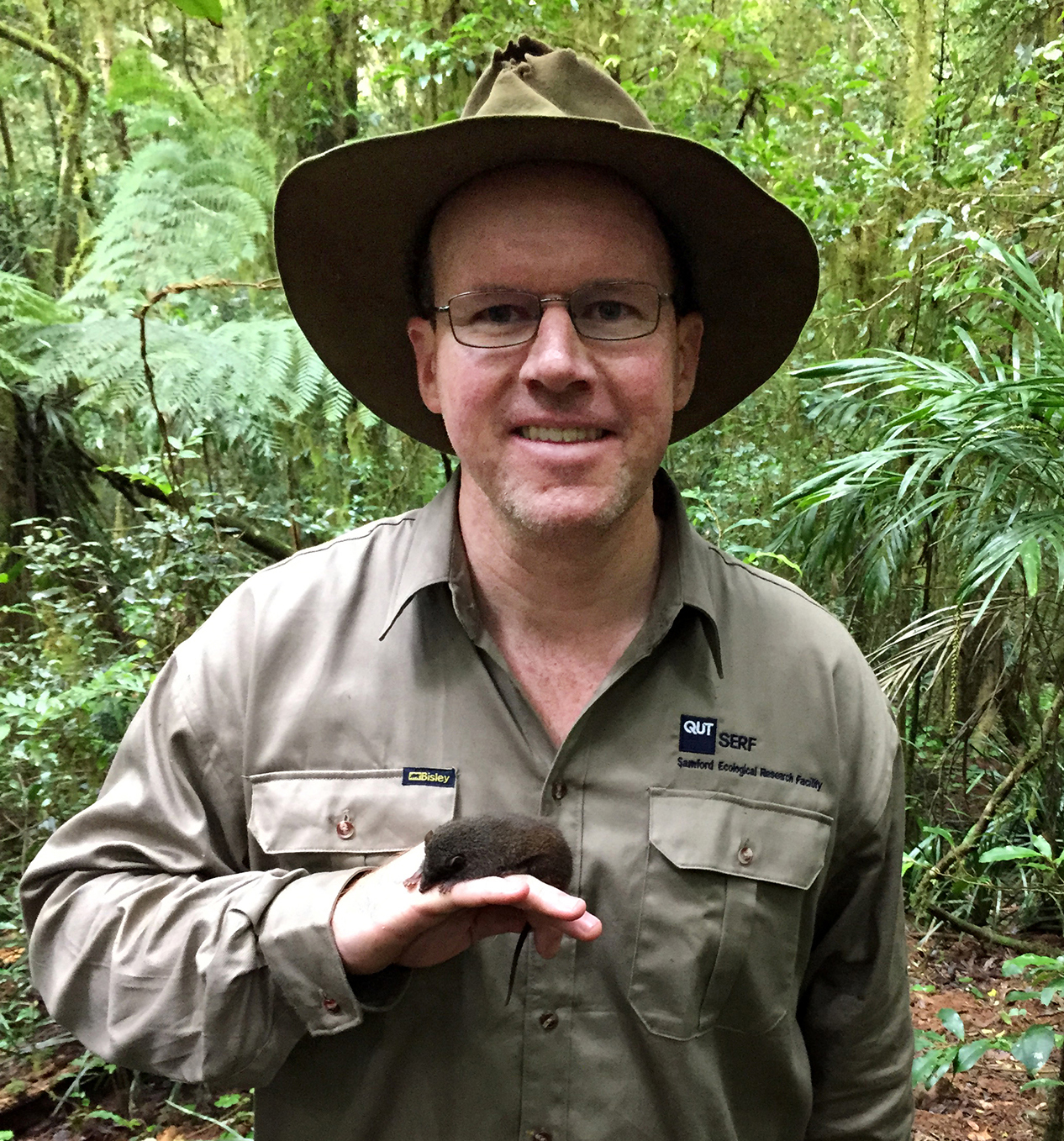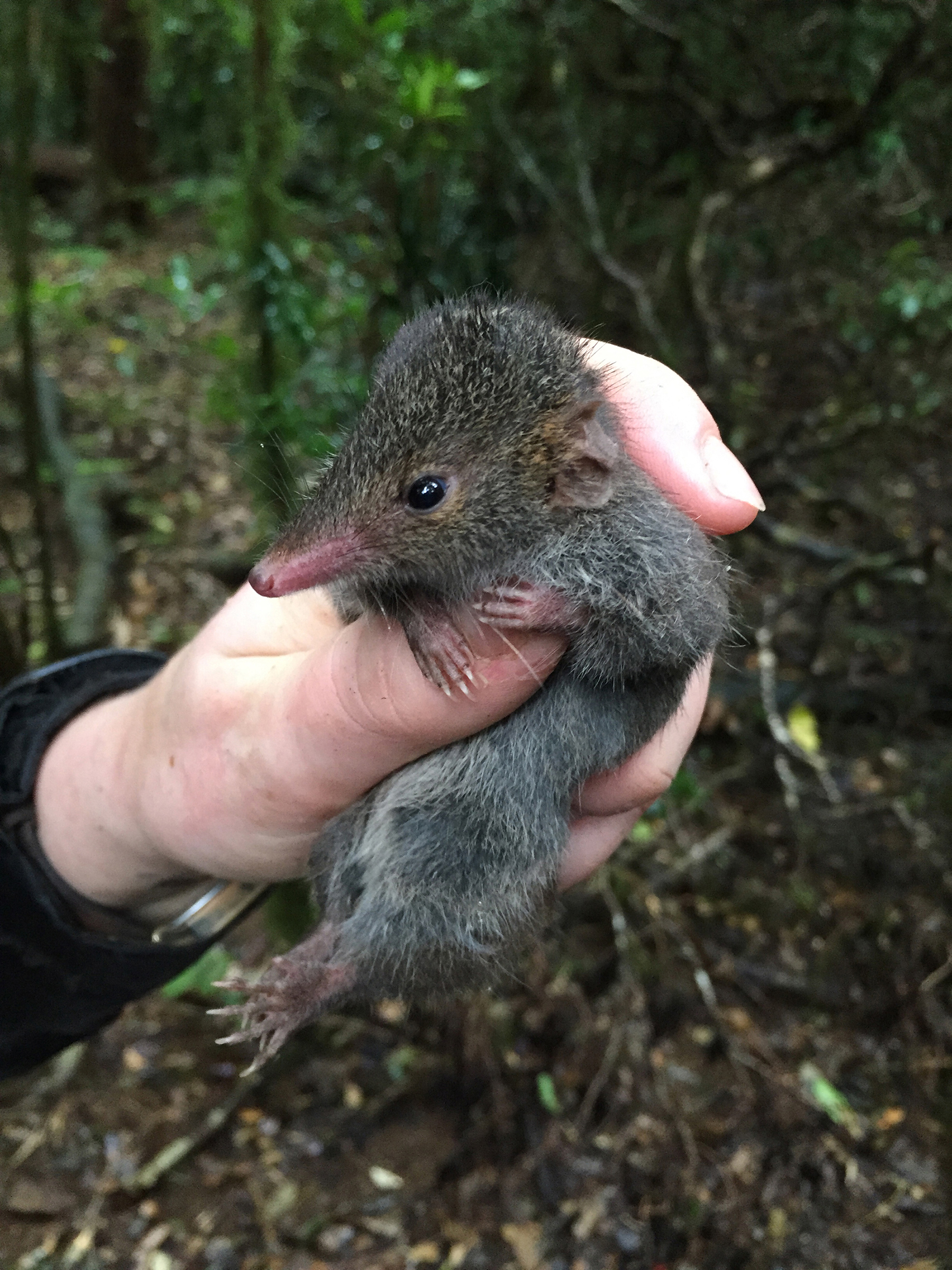
QUT mammalogist Dr Andrew Baker fears a species of the small marsupial known for its suicidal mating habits, that he and his research team found only a few years ago, may be extinct in one of its best known south-east Queensland habitats.
The black-tailed dusky antechinus (Antechinus arktos) was discovered in 2014 and last year placed on the Federal endangered species list. Like all its cousins – there are 15 identified antechinus species – the males and females are highly sexed, each year mating frenetically for a couple of weeks until all the males drop dead.
Dr Baker, from QUT’s Science and Engineering Faculty, said the research team spent time earlier this month and in June around Best of All Lookout at Springbrook National Park as part of their ongoing study of the rare antechinus. The area is one of the marsupial’s four known Scenic Rim mountain habitats.
“We were alarmed by what we found – or rather, didn’t find – on these recent trips,” he said.
“We have done trap-and-release studies in the same area annually from 2013 to 2017 between May and September. During those visits, it has been teeming with small mammals of various species easily caught, and that was what we expected to see again this year.
“However, in the 1750 traps recently set, no rare black-tailed dusky antechinus were captured, nor any of the very common brown antechinus (Antechinus stuartii). Based on past studies, we would have expected to see up to 10 black-tailed dusky antechinus captures and about 250 brown antechinus captures.
“We also saw a five-fold drop in the expected numbers of mosaic-tailed rats captured and a 30-fold decrease in bush rats captured.
“The results are very concerning. The colder months when food is scarce is when we would expect to see the antechinus at their most active, hunting and desperate for food, so readily attracted to the peanut butter-and-oat bait in our traps.
“Both the males and females are usually seeking to increase their strength ahead of the synchronised mating event that occurs from late August into September each year.
“So it begs a worrying question – is the black-tailed dusky antechinus lost from this area?”

Dr Baker said the researchers will return next month to Springbrook, and also visit the species’ other known Scenic Rim locations (Lamington and Border Ranges) with the Canines for Wildlife dog detection team, in the hope of locating the marsupials.
“The dogs have been trained to sniff out the antechinus scent, and we have used them successfully in the past, to build our understanding of the species’ distribution,” he said.
“We had hoped on these recent Springbrook trips to collect scat and fur samples as a refresher for the dogs, but instead captured no antechinus at all, not even the common species. The August field work now becomes even more important, to try and figure out what is happening.”
Dr Baker said climate change and extreme weather patterns are a plausible explanation for the drop in mammal species numbers.
“There is annual variation in local rainfall and antechinus numbers are known to fluctuate along with it,” he said. “But these latest results are off the charts and disturbing.
“In the summer of 2019, there was particularly low rainfall in the Scenic Rim. In January, rainfall totals at a weather station a few kilometres from our study site registered just 18.5 millimetres for the month, the lowest on records kept since 1981, and February rain was in about the lowest 10th percentile.
“Research has shown a strong link between the amount of rainfall and insect availability, so the low rainfall may mean little food for these small mammal species.

“January is also the time when juveniles of both brown and black-tailed dusky antechinuses should be moving from nests, independent of their mothers, and having to compete with lots of other individuals for their food – mostly insects and spiders. There may not have been enough to eat and they starved.
“Feral predators, such as cats, may also be a factor, preying on hungry or otherwise compromised small species.”
Dr Baker is an expert on antechinus and other marsupials and co-author of the recently published Secret Lives of Carnivorous Marsupials.
The collaborative research on the black-tailed dusky antechinus forms part of QUT student Stephane Batista’s PhD project, supervised by Dr Baker, QUT Associate Professor Matt Phillips and University of Queensland (UQ) Associate Professor Diana Fisher, and it is supported by Canines for Wildlife.
The research is funded by the Australian Government’s National Environmental Science Program (UQ grant) and the New South Wales Office of Environment & Heritage Saving our Species program.
Top image: Gary Cranitch, Queensland Museum
QUT Media contacts: Karen Milliner, 07 3138 1841 or k.milliner@qut.edu.au
After hours: Rose Trapnell, 0407 585 901 or media@qut.edu.au



